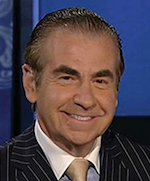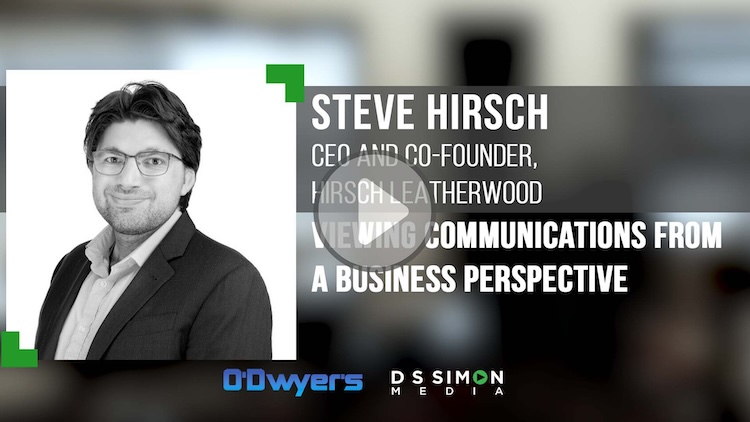 |
| Fraser Seitel |
Forget the “Great Resignation.” What about the “Great Cancellation?”
Everybody these days seems to want somebody to lose his/her/its job. Fire Joe Rogan! Down with Jeff Zucker! Can Whoopi Goldberg! Oh no, not Whoopi! Nobody’s safe from the beheading buzzards. And it’s just not fair.
Most of us, alas, need to work to earn a living. And it isn’t civil to call for somebody else to lose their income, no matter how miserable or unqualified or obnoxious you believe them to be. Oh sure, there are some individuals so grotesquely annoying—Vladimir Putin, Donald Trump and Stephen A. Smith come to mind—that you may wish Schadenfreude to rein down upon them, but it’s still wrong.
That’s why it’s with great reluctance and a heavy heart that I feel compelled to urge that Mark Zuckerberg should fire himself.
Mr. Zuckerberg, the CEO of Meta or Facebook or whatever he’s calling his company these days, must relinquish his post immediately; and, unlike Tom Brady, vow never to return. For the sake of the millions of Meta shareholders (Full disclosure: I’m one of ‘em!), Mr. Zuckerberg needs to resign.
Now, clearly, Zuckerberg deserves great credit for building a technological colossus rivaling the greatest corporations in history. His story, of course, is well known. After creating “Facemash” at Harvard in 2003, along with his roommates and assistance from fellow students Tyler and Cameron Winklevoss, he quickly outmaneuvered—i.e., “dumped”—his friends and started down the road to fame and billionaireship.
While the Winklevoss brothers and other sore-loser, multi-millionaire early investors may condemn his methods and tactics, Zuckerberg over the past decade has proven an astute leader, whose company, with two billion daily users, still ranks as the world’s number-one social medium.
But now his time is up.
Early in February, with growth slowing and TikTok making significant inroads into its market, Meta announced that quarterly profits declined eight percent year-over-year after spending $10 billion in the “metaverse” of augmented and virtual reality. Meta’s shares lost 23 percent in one day, and $240 billion of company value was wiped out. And it has remained thus ever since the disastrous earnings announcement and conference call.
Obviously, Zuckerberg alone isn’t wholly responsible for Meta’s current problems and stock market nosedive (There’s an impending WWIII, after all). But for the following reasons, Mark Zuckerberg’s ability to manage the company he founded has reached the point of diminishing returns.
He’s terrible at public relations
In an era where positive communications and effective PR have become a priority for any leader, Mark Zuckerberg is now, has always been and will continue to be the worst public face/voice/spokesman for his company.
First, he doesn’t enjoy the spotlight. He rarely talks to the press or addresses investors. And while years of media training have made less painful his infrequent appearances before Congress, he’s still hugely uncomfortable answering the preening gasbags’ questions.
Second, like a few other CEOs and politicians at the top of the pile, Mr. Zuckerberg is too arrogant for his own good. He’s convinced, as he says repeatedly, that Facebook is “a force for social good”, and that the company’s primary problem is one of controlling the narrative, rather than acknowledging its flaws or refining its programs or strategies.
Third, Meta’s myriad public problems demand an aggressive public relations response. Some companies, even big ones, can get away with staying in the background and not getting sucked into public controversies. Meta doesn’t have that luxury. From Cambridge Analytica privacy breaches to whistleblower charges of profits over safety to allegations of political misinformation, the company desperately needs a CEO willing and capable enough to handle its massive public relations challenges.
He’s too detached
To deliver the kind of positive PR Meta requires, the company must be led by a skilled communicator, which Mark Zuckerberg ain’t.
Like others of similar acumen, wealth and success—Jeff Bezos and Elon Musk, for example—Mr. Zuckerberg is a reluctant public spokesman. That’s understandable. His skill lies in computer programming, not public speaking. But whereas both Mr. Bezos, a computer scientist, and Mr. Musk, a physicist, come alive when discussing their quest for innovations on earth and elsewhere, there’s no such twinkle in the eye of Mr. Zuckerberg. Indeed, on those rare occasions when he’s obligated to speak, the Meta CEO comes across as passive, detached and, well, dull.
Now, if you’re CEO of a bank, dullness can be considered a virtue. Bank of America’s CEO Brian Moynihan, for instance, is dull as dishwater. But since he’s steward of a $3 trillion empire in business to safeguard people’s money, his dullness translates to “stability” and “prudence.”
The CEO of a visionary social media company, on the other hand, must communicate the opposite of dullness.
He has no succession plan
An essential element for any CEO to assure shareholders of corporate continuity is planning for who takes over once the chief bids adieu.
Apple shareholders feared the worst in 2009 when the company reluctantly acknowledged that Founder and CEO Steve Jobs had fast-moving cancer. But a year-and-a-half later, when Jobs finally stepped down, Tim Cook was groomed and ready to succeed him.
In Meta’s case, by contrast, Mark Zuckerberg’s number two, Chief Operating Officer Sheryl Sandberg, has acquired nearly as much public relations baggage as her longtime fellow-billionaire benefactor. Once the high profile darling of feminist activists, Ms. Sandberg’s performance in recent years—leading Facebook’s fumbling efforts to “handle” the Cambridge Analytica scandal, snooping into high tech critic George Soros’ financial dealings and other assorted public embarrassments—have driven her into relative corporate seclusion.
So, the company, now in free fall, has no one inside to turn to, other than competent and articulate public relations professional Nick Clegg, who’s good but not ready for prime time CEOmanship.
So, what’s a Meta to do?
Well, here’s what once hot bike-maker Peloton did this month after announcing a $439 million quarterly loss and watching its stock descend from $115 a share to the low $20s in one year. Peloton Founder and CEO John Foley announced he’d step down immediately and bring in the Chief Financial Officer of Spotify to replace him as CEO.
In response to the news, shareholders rejoiced, and Peloton’s stock immediately rose 25 percent.
My fellow Meta shareholders and I can only hope Mr. Foley has Zuck’s cell number.
***
Fraser P. Seitel has been a communications consultant, author and teacher for 40 years. He’s author of the Pearson text “The Practice of Public Relations,” now in its 14th edition, and co-author of “Rethinking Reputation” and “Idea Wise.” He may be reached directly at [email protected].










 Have a comment? Send it to
Have a comment? Send it to 
Feb. 21, 2022, by Joe Honick
Fraser, for several moments, I would have sworn you inserted Zukerberg's name for Trump!